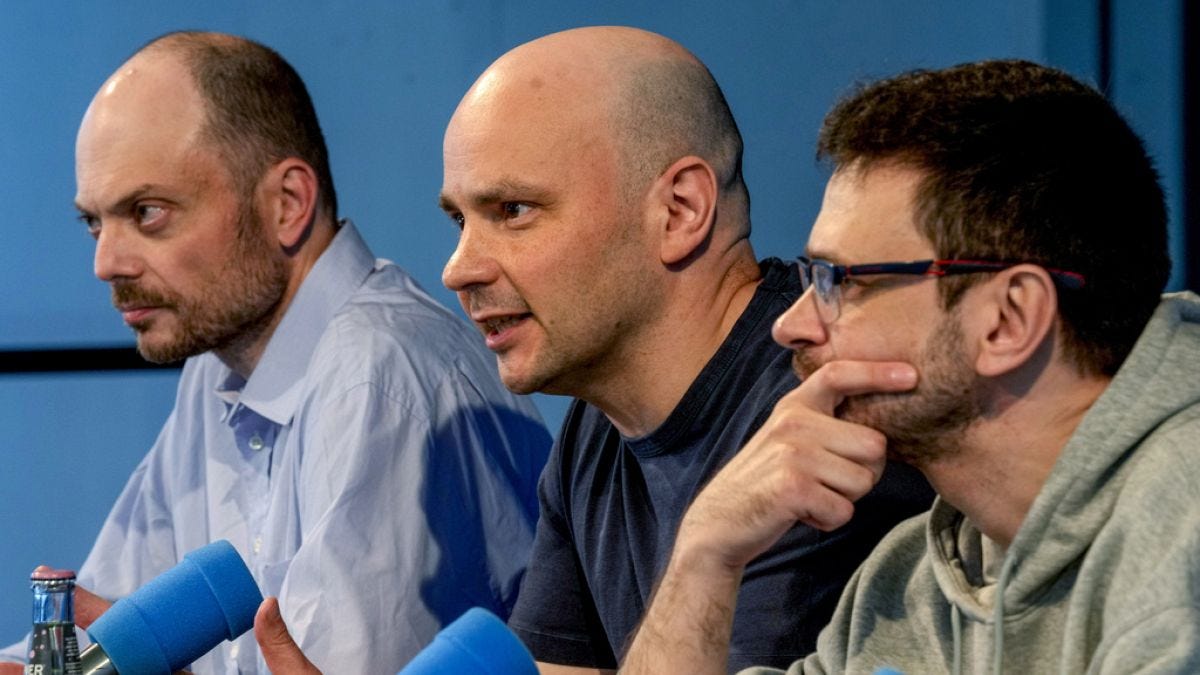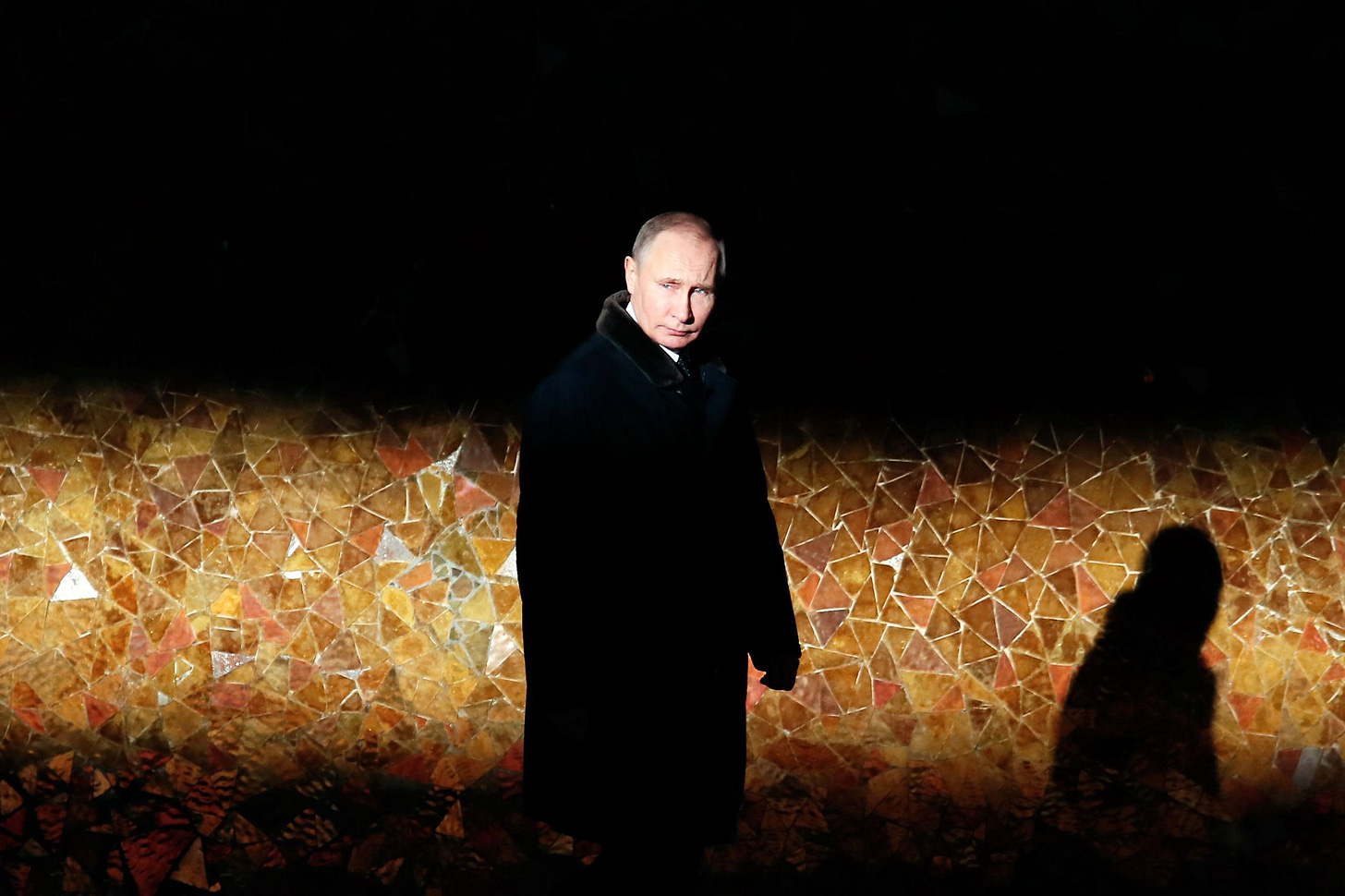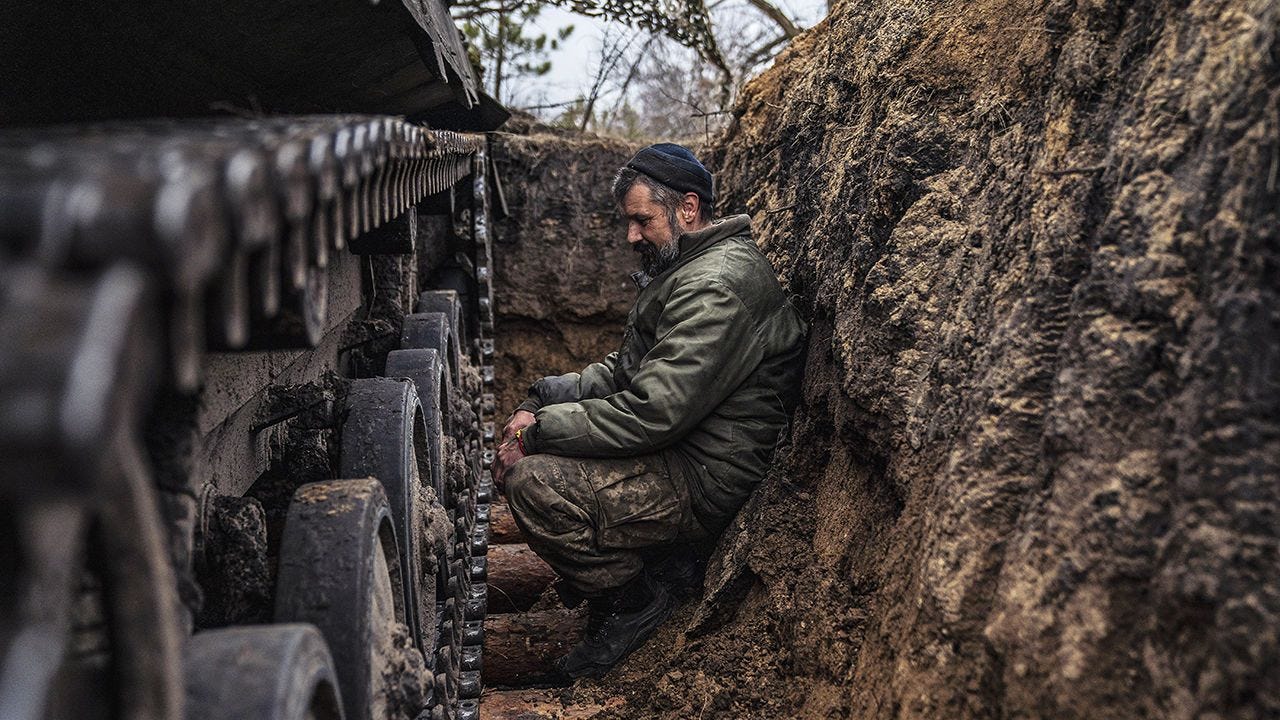Days after Russia’s march into Ukraine faltered, many predicted the war would trigger the downfall of Putin’s quarter-century-old regime. Three years later, hundreds of thousands are dead — over a million are injured — and Russian victory in some form is almost guaranteed.
With the Russian opposition broken, exiled, and cut down by assassinations and jailings, it must now grapple with yet another harsh reality — the risky bet to rally against the war has not just failed, but turned into a victory for Putin.
If the opposition is to survive, let alone have any chance of saving Russia from the stagnation, corruption, and lawlessness of the Putin regime, it must change its language. It must abandon its endless idealism, and it must abandon Ukraine.
This does not mean embracing Putin’s war. It means reclaiming the language of national strength from the very regime that has squandered it. The opposition must learn to speak to Russians not as distant moralists, siding with Russia’s rivals and enemies (even if those feelings may not be justified), but as fellow patriots: condemning the war not for its aggression, but for its failure; not for what it did to Ukraine, but for what it has done to Russia. Only by turning their critique inward — toward the incompetence, theft, and decay at the heart of the Kremlin — can they hope to reconnect with a proud, fearful, and profoundly alone public. The future of the Russian opposition will not be won on Western terms. It must be fought — and framed — on Russian ones.
The War
One of the primary foundations for this thesis is that the war in Ukraine has now reached its half-life, and the certainty of a Russian victory is only increasing. This is significantly reinforced by the state of Ukraine’s war effort, the global economic and political situation, and the resilience of Russia’s economy.
Downturn of the Ukrainian War Effort
Ukraine’s military has thoroughly shocked the world after years of not just resisting its much larger neighbor, but even achieving stunning successes against the Russian Army. However, such a brutal war takes its toll, and its terrible impact is becoming increasingly apparent.
By 2024, Ukraine’s counteroffensives had ceased to be a real threat, with the operational failure of the 2023 summer (originally intended to be spring) offensive marking the end of Ukraine’s offensive capabilities. Russian forces had adapted to the conditions of modern warfare, with billions of dollars' worth of Western material yielding minimal territorial gains and staggering casualties as they encountered massive minefields, layered defenses, and a continued superiority in artillery numbers. Since then, the war transitioned into a brutal battle of attrition, in which Russia has a prime advantage.
With the war dragging on for years, Ukraine’s numerical population disadvantage has become more and more pronounced, further exacerbated by its 25% collapse since the start of the war. Mobilization has slowed amid public exhaustion and this demographic collapse, with the army facing a growing manpower crisis. Despite pressure from the United States, the Ukrainian government has so far refused to expand its mobilization, both fearing for the demographic effects of such an action and the domestic disapproval it would cause.
Ultimately, what was once hopeful news of victories has evolved into a steadily more negative stream of minor defeats, underperformances, and troubles. It seems that the West has begun banking on Putin to abandon Ukraine, as if it is a war of attrition similar to Afghanistan, rather than for Ukraine to bring him to the negotiating table. However, this fundamentally fails to realize that, as much as the Kremlin wants to pretend it’s a war like Afghanistan, far from home and ‘irrelevant’ to the ultimate success of the country, Putin sees this war as an existential conflict for Russia. In that he is partially correct, as the war truly is an existential conflict for his regime — something that the liberal opposition saw and, unsuccessfully, gambled on.
The Global Situation
The inevitability of some form of victory for the Russian Federation under the United Russia party also stems strongly from the global situation. The breach of Ukraine’s borders in 2022 saw near-unilateral condemnation in the chambers of the United Nations and the highest level of unity experienced by NATO since the Cold War.
Today, NATO countries are exhausted. The sharp cost-of-living crisis that has swept through Europe and North America since the invasion has left electorates increasingly hostile to the idea of indefinite foreign aid. Domestic populist movements across the West have capitalized on war fatigue, urging their governments to refocus on domestic issues. In Germany, military rearmament has stalled. In France, protests and uncertainty dominate headlines as the government is split between the left, centre, and right. In the United States, Donald Trump’s return to the presidency has disrupted the international consensus. His early statements questioning NATO’s value and mocking continued aid to Ukraine have weakened not just America’s global leadership, but the very idea of a united Western front that has been cultivated by Washington since 1945.

Washington’s short-lived withdrawal of aid to Ukraine for several days was especially stinging, as it coincided closely with Ukraine’s withdrawal from the Kursk oblast — one of the few battlefield successes Ukraine had accomplished since the failure of the 2023 offensive.
This erosion of resolve has not gone unnoticed. Russia, despite the initial sting of sanctions, has weathered the global response with unexpected resilience. Key non-Western powers — China, India, Brazil, and much of the Global South — have refused to isolate Moscow, instead deepening trade ties, welcoming Russian energy exports, or maintaining diplomatic neutrality. The BRICS alliance has gained new weight and membership, while Western-led sanctions regimes have begun to lose their effectiveness. The result is that Russia is not facing a global pariah status, but rather a divided world, where Western condemnation increasingly sounds like the voice of an aging, shrinking minority.
For Russia, this has revealed where its true power lies — while the Army has lost much of its Soviet tradition and capability, whether due to a lack of funding, industry, or immense corruption, governments throughout the West have faced domestic disasters. Even when sanctions somewhat worked, they only served in Russia’s favor, with the sharp uptick in oil prices helping fund the war. Ultimately, this shows the Kremlin a linear trend — the longer the war continues, the more destabilized, isolationist, and defeatist the West becomes — and this trend leads solely to a Russian victory.
The Russian Economic ‘Miracle’
Just as Russia has adapted on the battlefield, it has also defied expectations economically. In 2022, the West went all in on sanctions — sweeping, synchronized, and historically unprecedented measures that were expected to crater the Russian economy, severing it from the world and cratering the regime’s ability to wage war. But rather than collapse, the Russian economy prospered.

By 2024, the ruble had stabilized, inflation had moderated, and GDP growth was not only positive but also outperforming most of Europe. The World Bank recorded Russian GDP growth at 3.6% in 2023, compared to a -0.3% decline for Germany and similar stagnation across much of the Eurozone. Industrial output surged as the economy was stimulated by substantial military-related spending. While much of this growth is artificial and unsustainable in peacetime, it remains politically effective. Wages are rising in the defense sector. Factories are humming in provincial towns. Unlike in Ukraine, Russia’s ability to draw upon its own industrial base, energy exports, and massive reserves has kept the economy functioning — even thriving in the narrow sense that matters most to the Kremlin: survival.
Crucially, this economic stabilization has been paired with a broader sense of normalcy. While Russians are aware of the war, they don’t feel its impact, especially in the major urban cities that the Kremlin needs to satisfy to maintain its power. So far, Putin has maintained the social contract, though he came dangerously close to straining it when he was forced to announce a mobilization seven months into the war. The situation was then much more desperate, and today the military finds its manpower needs largely met — at least to a much higher degree than Ukraine’s — by contract recruits.
The economic narrative, then, reinforces the political one. Putin has built a system that, though repressive and brittle at its core, appears to most Russians as functional, stable, and capable of weathering a world increasingly defined by disorder. The longer sanctions fail to produce regime-shaking results, the more proof the Kremlin has that its model works, and the less credibility the opposition has when arguing otherwise.
A Losing Bet
Since the initial invasion and its failure, the liberal opposition bet hard on opposing the war, rallying its supporters to anti-war marches and speaking out against the conflict. The strategy ultimately provided the motivation and foundation for the Kremlin to suppress the domestic opposition. However, it may have still delivered a result had the war ended in a humiliating defeat for Putin’s regime.
Yet with the near certainty that the conflict will now conclude in a manner acceptable, if not desired, by the regime, the gamble is nearly guaranteed to fail. Even if the war effort collapsed, the opposition has been so thoroughly devastated that it simply cannot succeed in overthrowing Putin’s regime. Instead, the extremes of Russian politics or even the oligarchic establishment are much more likely to hold the reins of power should the United Russia party fail.

Picking Up the Pieces
Now that it has been established that the Russian opposition’s gamble on Ukraine has fallen through, we must build the path forward. The fight for a better Russia — one free of corruption and tyranny, no longer being suffocated by a regime of mediocrity and cowardice — must not fail with one mistaken bet.
The blunder has cost the liberal opposition dearly and tragically. Yet, this provides an opportunity — just as the opposition was created from near nothing during the transition from Yeltsin’s to Putin’s era, we now can build a new opposition, on the lessons of what came before — not one bound to foreign ideals or Western applause, but rooted in the language, memory, and grievances of the Russian people themselves. We can cast aside the idealism that we may have had room for in the 2000s or 2010s, and build a more nimble, capable opposition ready to accomplish its goals and save Russia from stagnation and demise at the hands of the corrupt regime.
That begins with understanding what the war revealed — not just about the state, but about the people, their fears, loyalties, pain, and pride, and the opposition. If the opposition listens, learns, and speaks their language, it can pick up the pieces and begin again, a better, swifter movement.
A Russian, Not Exilic, Opposition
One further lesson must be stated plainly: Russia and Ukraine will not be brothers again, perhaps not for generations. The mythology of Slavic unity has been shattered not just by the war, but by what preceded it — years of tension, betrayal, and political drift. What now exists is not a shared culture but a disputed history, and above all, a disputed land. Crimea did not become contested simply because Putin invaded — it has been contested since 1991, and was never universally accepted by either side. What lies ahead is not reconciliation, but rivalry. And the Russian opposition must stop pretending otherwise.
To regain legitimacy, the opposition must stop centering itself on imagined futures where Russia and Ukraine reunite in liberal fraternity. It must instead focus on Russians, not Ukrainians, not the West, and not even the large émigré community that often serves as its loudest cheerleader. The Russian diaspora is complex and admirable, but it is not a political constituency. Many of those abroad, despite having spent years in Russia, now carry a post-Soviet, anti-Russian, or pro-Ukrainian identity shaped more by displacement and time spent abroad than by continuity. That is their right. But it is not the basis for a movement meant to lead the people still living within Russia’s borders.
The new opposition must represent those people: the pensioner in Tver, the teacher in Novosibirsk, the soldier’s widow in Bryansk. They are not idealists. They are not Westernized. But they are real — and they are suffering at the hands of the regime, whether that suffering is visible or not. A movement that learns to speak for them, not over them, may yet find a second life. A movement that speaks for itself, or for applause from abroad, will not.





